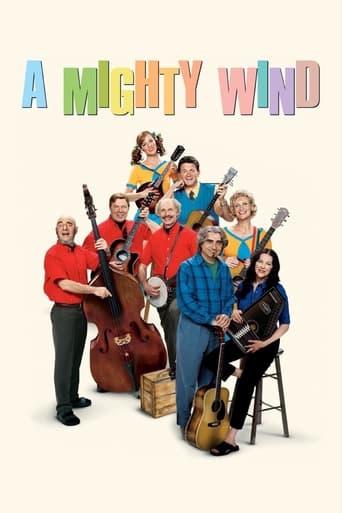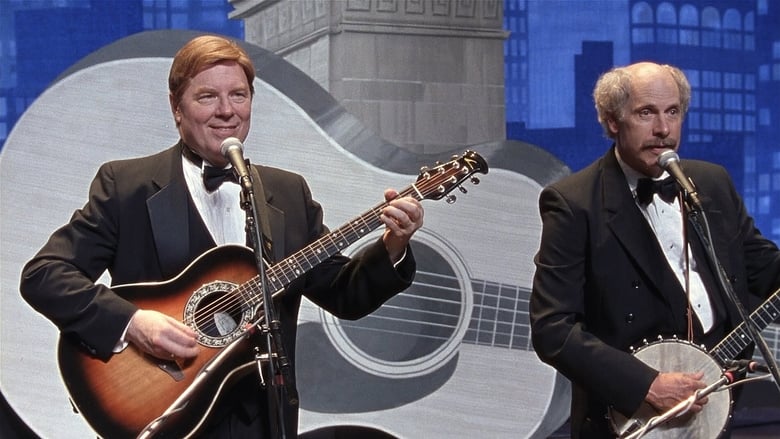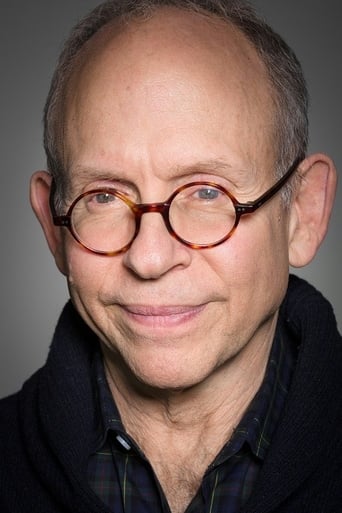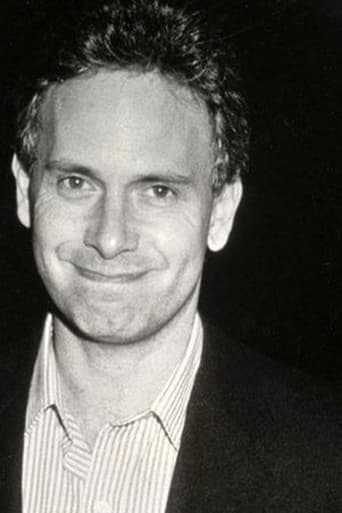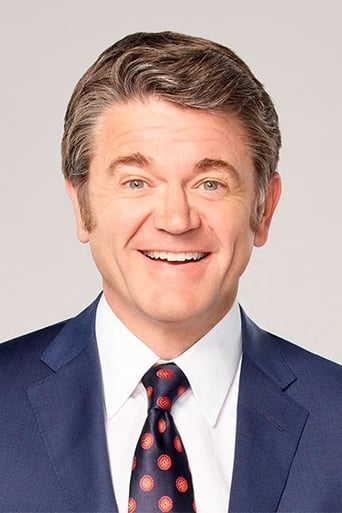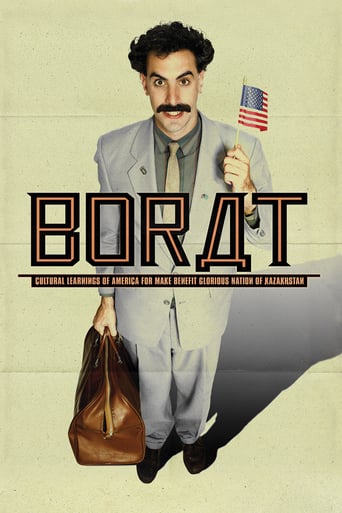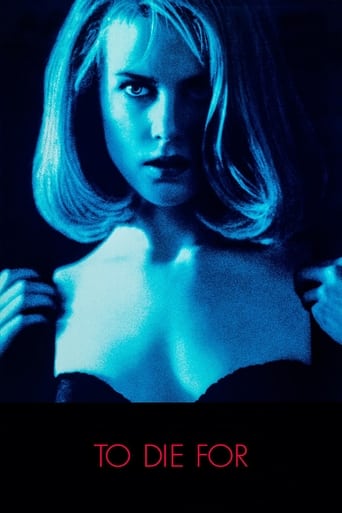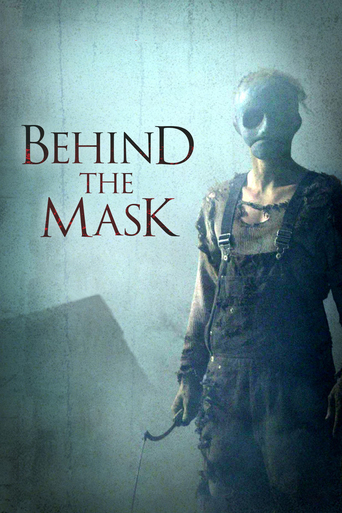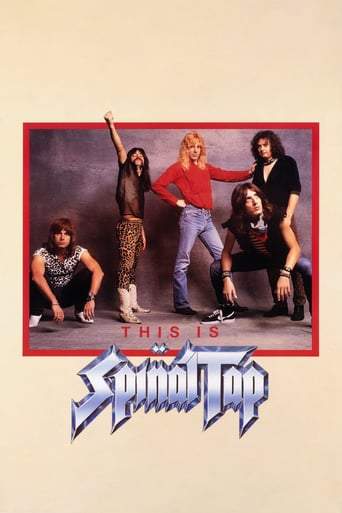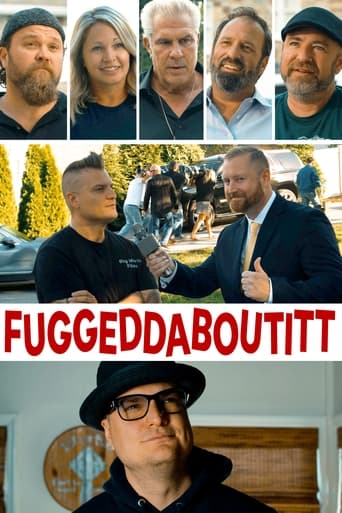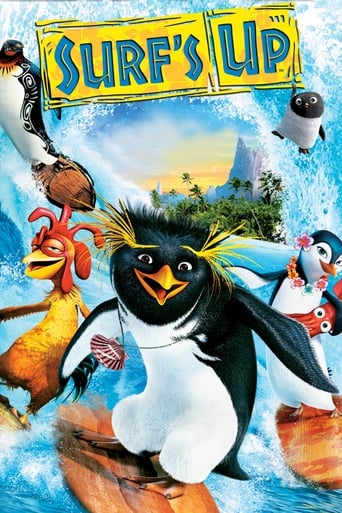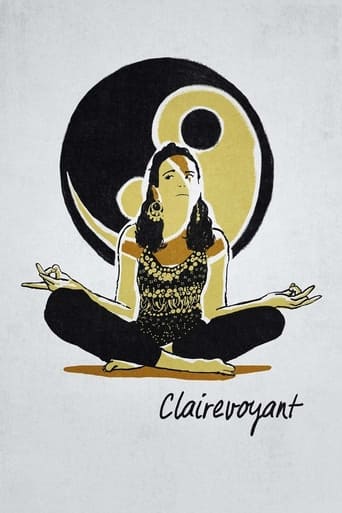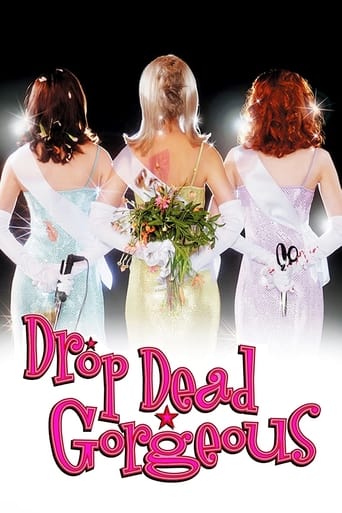A Mighty Wind (2003)
Director Christopher Guest reunites the team from "Best In Show" and "Waiting for Guffman" to tell the story of '60s-era folk musicians, who, inspired by the death of their former manager, get back on the stage for one concert in New York City's Town Hall.
Watch Trailer
Cast


Similar titles
Reviews
The narrative framework is folk singing, but this is a movie made by a bunch of friends who have a genuine love of performing. All the dialogue is improvised, the humor is inspired.Bonus points for the "Up With People" sendup.
Organising a revival show for three 1960s folk music acts proves challenging for the son of a legendary concert promoter in this mockumentary from Eugene Levy and Christopher Guest. Much of the dialogue is memorable ("abuse in my family... mostly musical in nature") and the film is full of colourful characters, especially Fred Willard's stand-up comedian unaware of his own lameness. In fact, all concerned deliver energetically, and yet the film never coalesces into more than a series of rather random, offbeat episodes, none of which are especially funny. This is a rare comedy for which the audio commentary (by Levy and Guest) is actually funnier than the film itself as Guest keeps throwing in funny lines as "it was my idea to have him... talk" and as the pair discuss the detailed background stories they developed for each and every character (little of which made it into the final film). This perhaps highlights the film's biggest shortcoming: all of the characters are wonderfully imaginative, but the structure of the film never gives us a chance to get to know most of them and feel their anxiety/desire over a comeback. All that said and done, the film concludes on a strong note with a great eventual concert (and lots of memorable songs), but Guest's subsequent 'For Your Consideration' - and his debut 'The Big Picture' - provide a better indication of his talent.
A MIGHTY WIND is not a simple sequel to the earlier comedy spoof THIS IS SPINAL TAP. There was nothing in that film that was really moving (the death of the drummers in the band became an occupational hazard after awhile). Instead, A MIGHTY WIND is a bittersweet film about the passing of a briefly appreciated musical trend, but more important the tragedy of two of that trends celebrities in the failure of their marriage. For the marriage of Mitch and Mickey (Eugene Levy and Catherine O'Hara) becomes the centerpiece of our attention by the last third of the film.The up-beat small town Americana personified in the music of the three groups is not totally dead. One can hear people strumming 1960s kitch even today. But it was supposed to be a tonic to the rock and roll and protest songs of the 50s to the 70s. It just did not have the staying power of those songs. One of the ironies of the film is that Michael McKeon's group is spoofing "The Weavers", but that group (led by Pete Seeger) transcended this kind of music and ended up leading the vanguard of the anti-war protests of the 1960s. When McKeon is approached about a song concerning an incident in the Spanish Civil War that his two partners are not afraid to sing he looks rather put out - he just doesn't think it's their type of music.The key to this film's difference from SPINAL TAP is that the numbers are actually just this side of good. One can hear all of them without being turned off by them seeming so naive. This is particularly true of Mitch and Mickey's number regarding the kiss at the end of the rainbow. It actually is moving as sung by them, and (in it's first performance) they did a kiss. It becomes their signature song. But the love that led to their marriage (a love on Levy's part that got him badly beaten defending O'Hara when she was insulted) does not last. Levy's Mitch has a mental problem, and the two divorced. But O'Hara's Mickey always was concerned about him - even after she had a successful second marriage. When he briefly vanishes just before they go on (he went out for some air and to get her a flower) she becomes hysterical thinking he may have gotten hurt. They do the kiss again for the live audience, but it is obvious that they really wanted to. But once they do they revert because they don't want to give each other the wrong signal.That business gives a heart to the film totally missing from SPINAL TAP. This does not mean the comedy is not funny - it is on target. The interviews that reveal too much about the people being interviewed. The behavior of the dead impresario's older son who is concerned about whether flower arrangements at Town Hall may lead people to fatally injure themselves tripping over the dangling flowers, or that they will be confused by stage decorations mingling painted banjos that look like they are three dimensional next to real street lamps. The head of Town Hall showing the acoustics by singing "Ave Maria" badly. The belief of two of the singers in some reality involving color and levels of sound. The television network honcho (Ed Begley Jr.) who is Swedish, boasts of some obscure song he wrote that was big on Stockholm song charts years ago, and uses Yiddish words as a kind of proof of his being a producer. It is a wonderful movie, and superior (I feel) for that degree of sadness it reveal in the lives of two star-crossed lovers.
What "Best in Show" and "Waiting for Guffman" contrasts from other ensemble comedies is that the directors give the stars the liberty to improvise their lines and let them express their interpretations of the situations they face in their respected scenes. Very few directors have the bravery to perform such a task, but director/performer Christopher Guest manages to do that and succeeds. This gives these top comic stars the opportunity to just let their comedic juices flow naturally."A Mighty Wind" differs from the other two aforementioned is that instead of being focusing on an ensemble cast, it predominately concentrates on two characters, folk singers Mitch (Eugene Levy) and Mickey (Catherine O'Hara). The storyline is pretty easy to follow. A group of folk singers from the 1960's get together again for a concert credited by their creator Irving Steinbloom. The main attraction are Mitch and Mickey, who were once a singing but it ended in an ugly break-up. Mickey moved on to marry the legendary Leonard Crabbe (Jim Piddock), while Mitch unfortunately hit rock bottom.Overall the cast of talented performers naturally throw themselves into their roles. Fred Willard, Jennifer Coolidge, Spinal Tap alums Harry Shearer, Michael McKean and Guest himself are all effective in their performances. But it was Levy and O'Hara that stole our hearts and it was a shame they were rejected winning Oscars because they went over the limit in providing comedy and giving a lifelong lesson that settling their differences won't be solved by having an affair. There's no gregarious sex scene or any cheesy serenading from a bedroom window or something like that. Nothing forced comes out of these characters as they express their passion through subtle methods like body language and facial emotions. This is a romantic comedy with such amazing chemistry it'll melt your heart like a hot knife through butter. But one could argue that Eugene and Catherine have known each other when they first broke into entertainment over 35 years ago when they were alums on the popular Canadian sketch comedy "SCTV". The real flaw in this movie that with so many stars in such little time, so many of the stars have very little to do, that their roles are underused. The scene where Mitch and Mickey kiss may not appeal to many, but I really thought it was one of the more pivotal scenes in the movie. It was so touching and may even put you in tears. Of course for the music lovers of all genres, the singing was very entertaining. This talent pool can do it all and all so poignantly. The humor is not over-the-top zany like in other Guest films. Instead we have a romantic comedy/musical about two poor souls trying to work their problems out.

